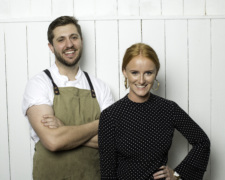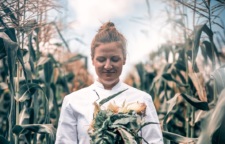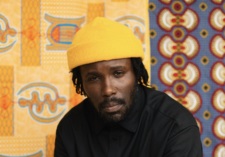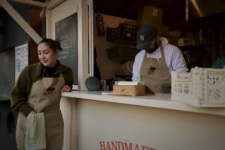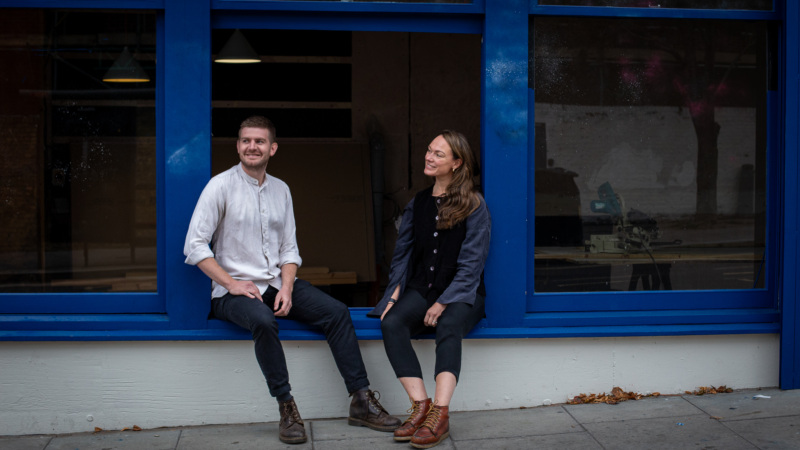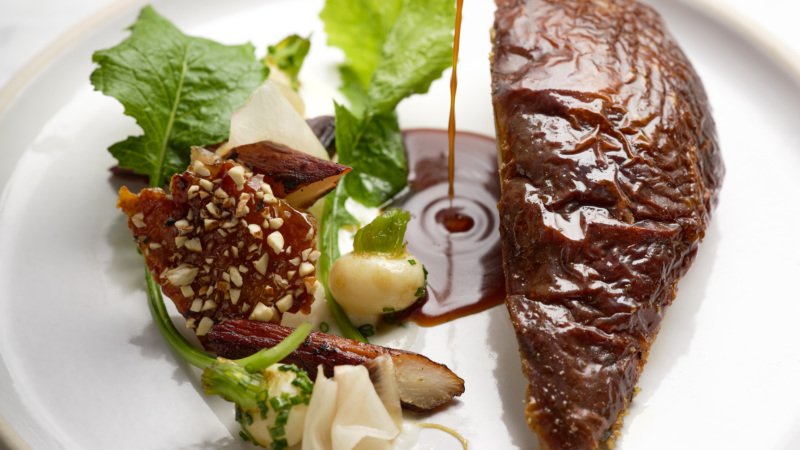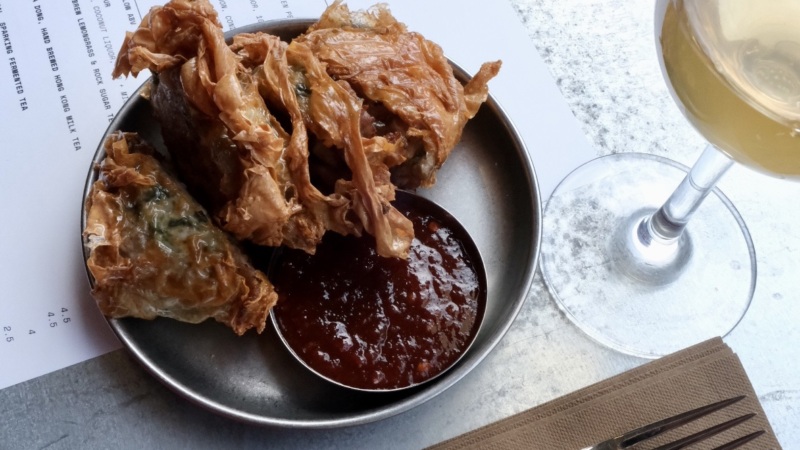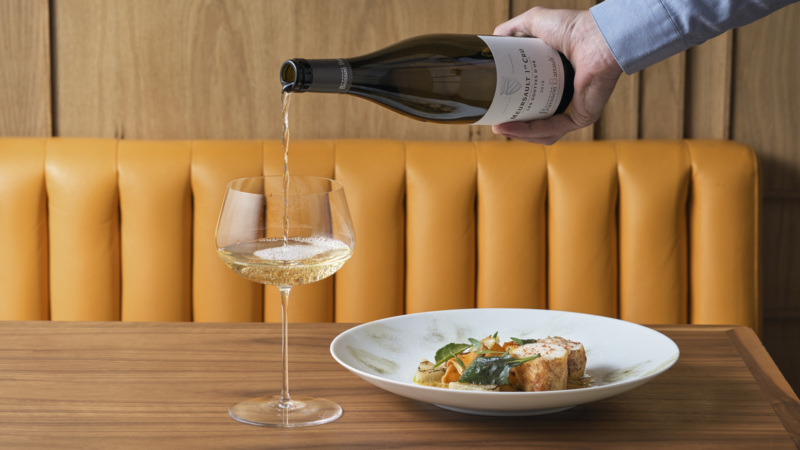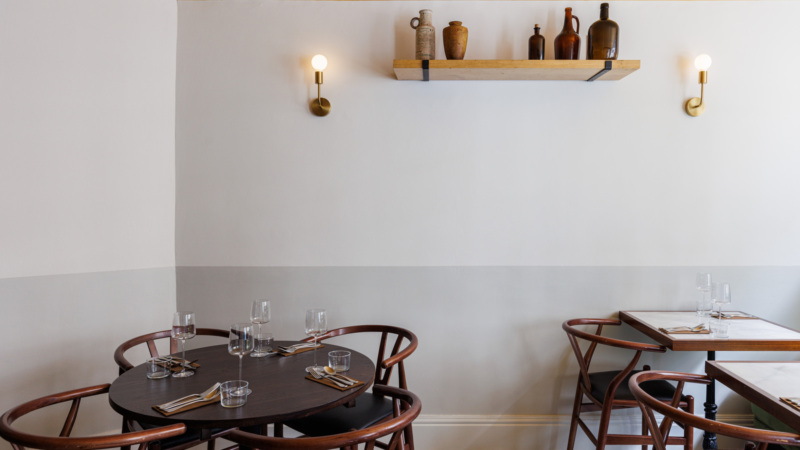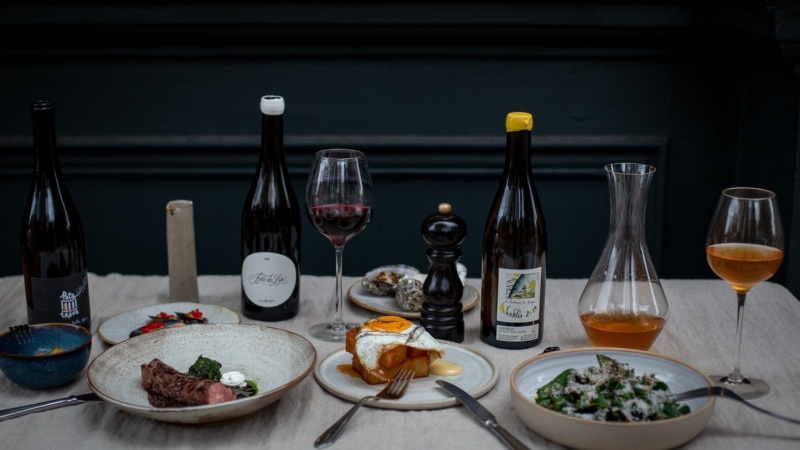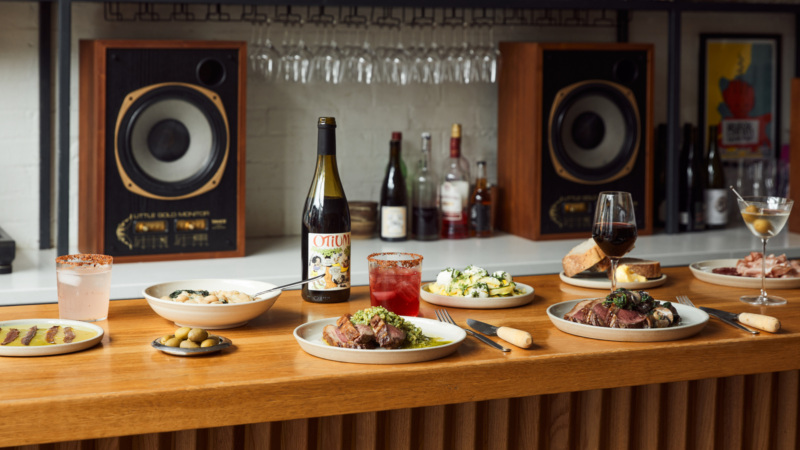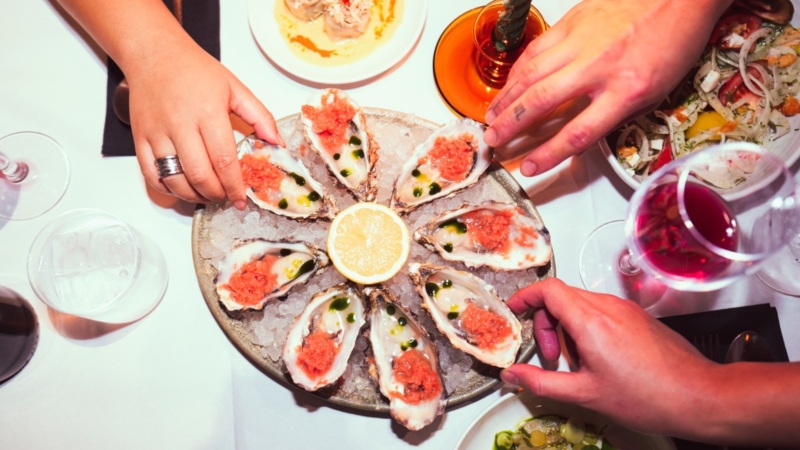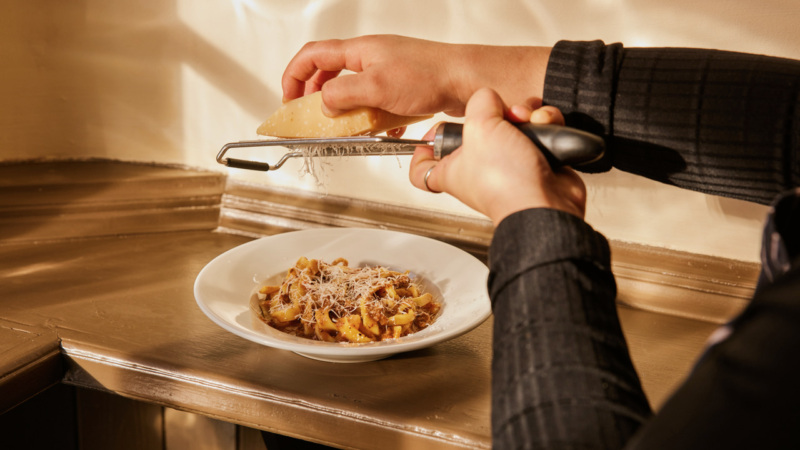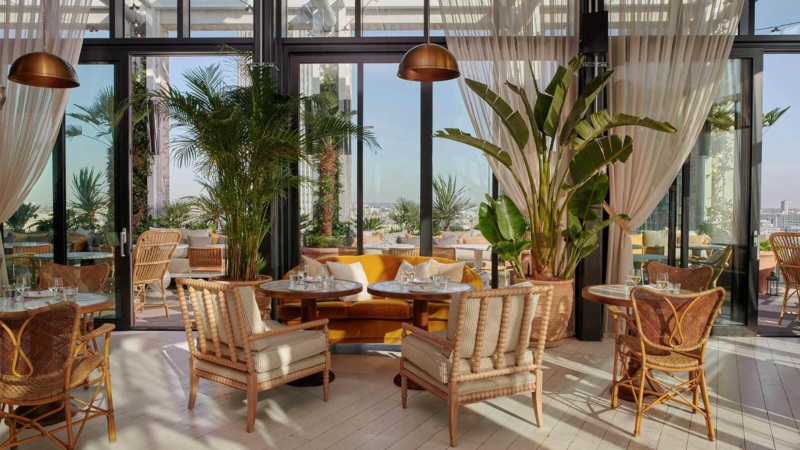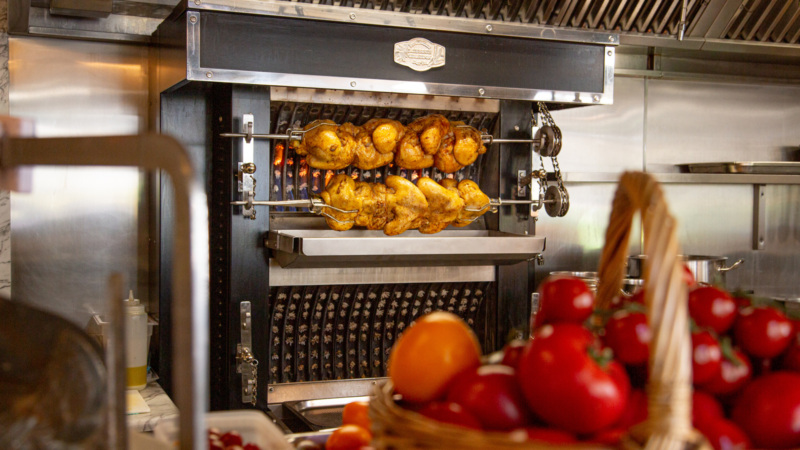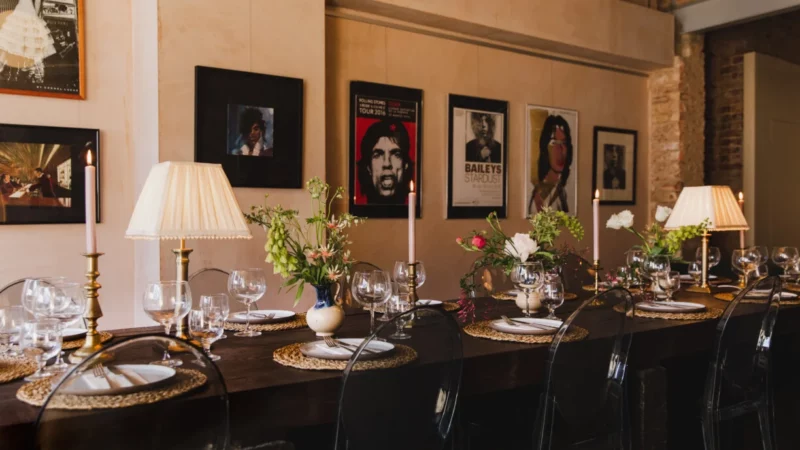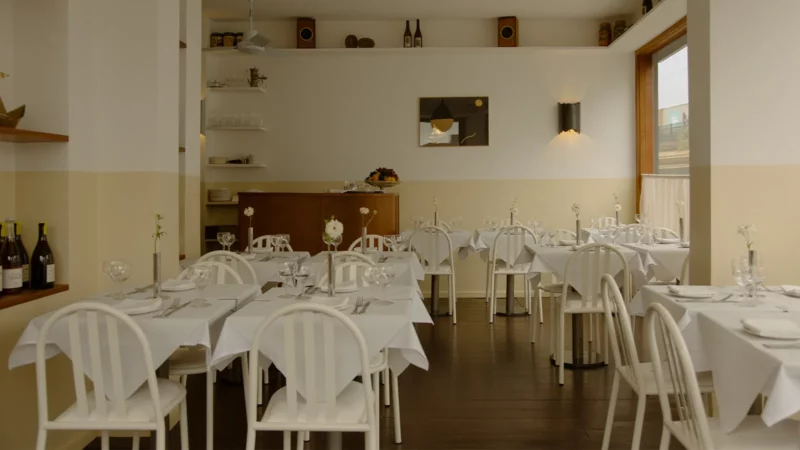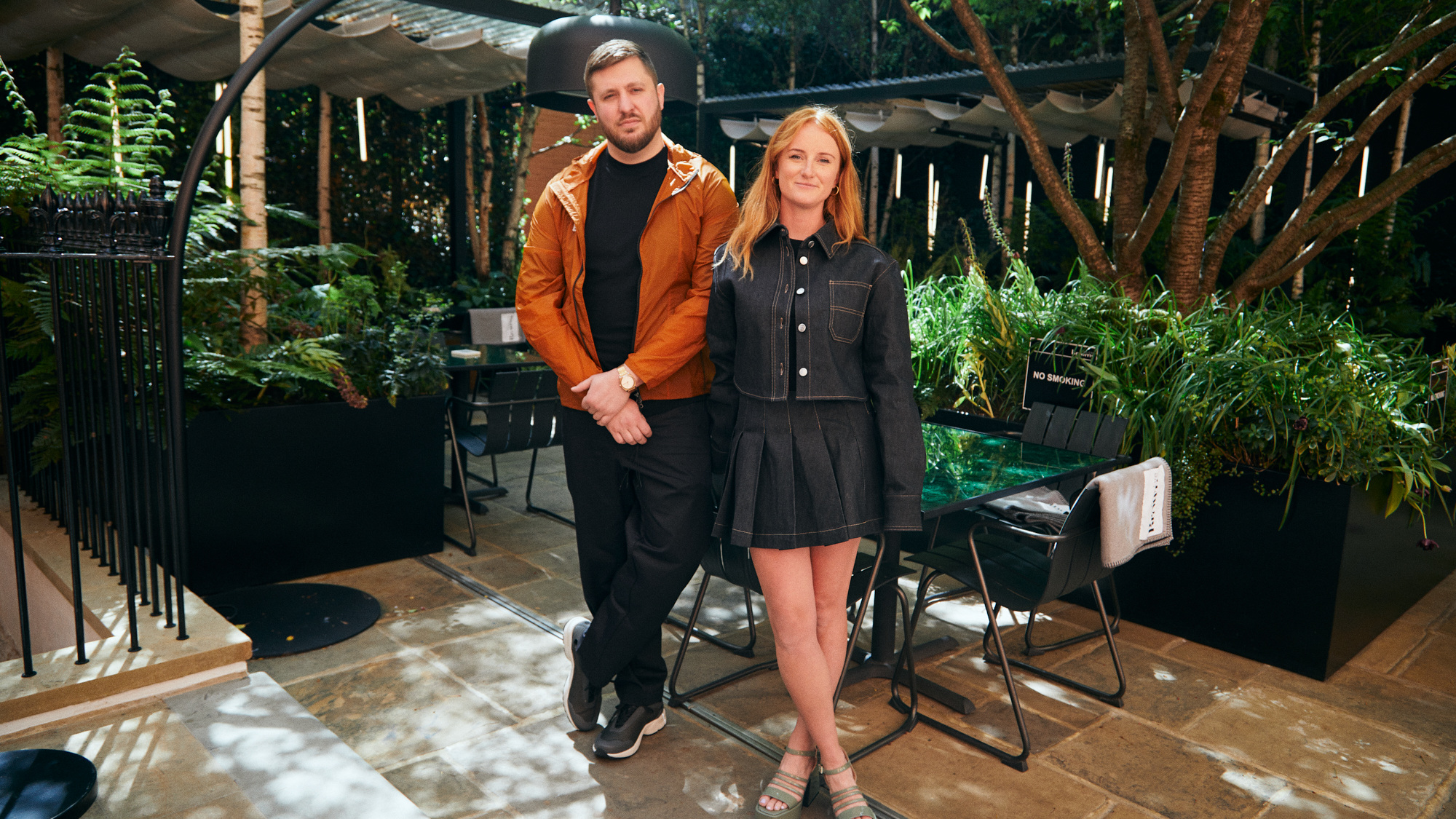
Meet The Culinary Duo Addressing The Food Systems Crisis Head On
It’s easy to raise an eyebrow when it comes to ‘sustainability speak’ in the restaurant industry when the broader picture is so incredibly challenging, but restaurants are entangled in the system to the extent that every decision they make on sourcing impacts biodiversity, seed sovereignty, CO2 emissions, and the labour costs of our farming system in the UK and beyond.
This is why so many chefs take up the mantle willingly, and engage enthusiastically in the promotion of regenerative farming – none more so than Ivan Tisdall-Downes and Imogen Davis, formerly of Native, who are a duo on a mission.
After their critically acclaimed residency at Browns ended in September, they’re returning this October with a bold new guest series at The Sea, The Sea Chef’s Table in Hackney, which will run every Monday and Tuesday from October 30th to November 28th. The ‘Fix The Food Chain’ series –previously incarnated in 2019 as ‘Not Native’ at their London Bridge restaurant, and one that moved the needle on the ambition of a dining series – addresses the global food systems crisis head on, and will feature a different guest chef every week, highlighting invasive species to the UK like signal crayfish, Japanese knotweed and gray squirrel, as well as different cultures of sustainability around the globe, by way of the UK.
The all-star line up includes fine dining big hitters like Malaysian chef Ramael Scully, who blends global flavours with spectacular results at his eponymous St. James restaurant, and Ash Valenzuela-Heeger of Riverine Rabbit, who trained at the 50 Best-ranked Test Kitchen in Cape Town. Then there are the trailblazers, like Ghanaian-British chef Akwasi Brenya-Mensa of Tatale and Adriana Cavita, whose approaches to West African and Mexican cuisine are unique to them (peep the full lineup here).
Each chef brings a singular perspective to the world of ‘zero waste’ fine dining, sharing global techniques and knowledge that are conveyed through each dinner’s six courses. In some sense, bringing these myriad voices to the table expands the often-narrow view of what constitutes ‘sustainability’ and opens the door for a diverse array of flavours and the sharing of knowledge.
We met with Tisdall-Downes, who heads up the kitchen, and Davis, who manages front-of-house and curates the drinks programme, to understand more about the series, what guests can expect at each dinner, and who they’re most excited to work with.
▪️
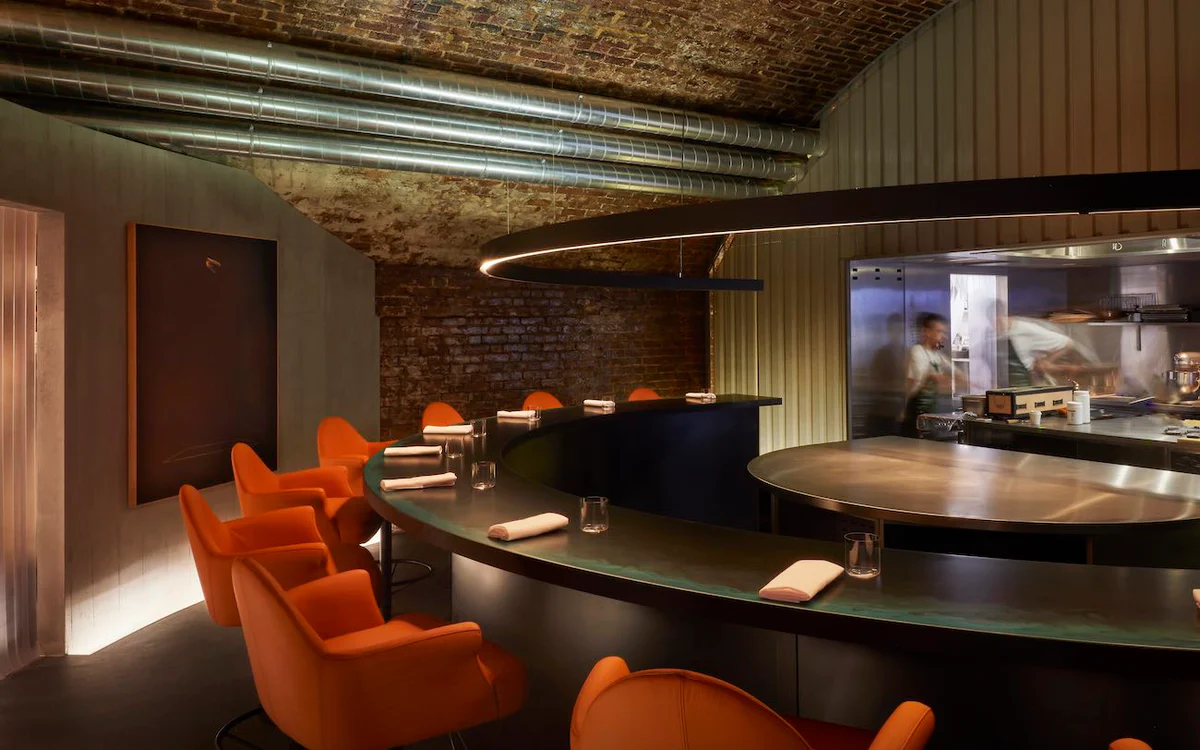
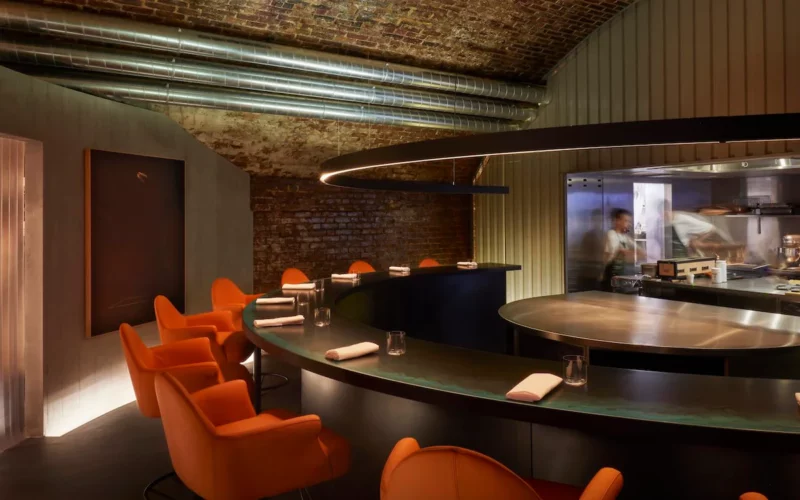
How would you summarise the concept of the series? What inspired you to do it?
Imogen Davis: As a restaurant, our whole aim is to fix the food chain. That may sound very grandiose, but effectively, if we can make it a tiny bit better then we’ve succeeded as a restaurant. So when you think about it like that, you can’t just look at it on a tiny island scale, you’ve got to look at it as a global matter, and this is where the new series comes into it.
Ivan Tisdall-Downes: We’ll be looking at different cultures’ interpretations of sustainability and zero waste because fixing the food chain is a global issue and we can’t just look at it through UK-centric glasses.
ID: And with a new series like this, we haven’t got any preconceptions, which means we can push our boundaries a bit.
Why did you choose The Sea, The Sea Chef’s Table for the series?
ITD: For us, it was important to find a venue where we can interact easily with the customers. We want our story to come across, but also the story of the guest chef to come across. We want to talk and learn and open up avenues of conversation.
ID: And for me, everything that we’ve always been about is as much transparency as possible, so I love that you’re basically going through a manufacturing plant. You see the fish hanging up, and often you see fishermen in their fishing gear, and it feels very real, that connection to where our food comes from. That’s my favorite part about it.
ITD: We’ve also bought fish from them for the last two or three years, and they have the most amazing dry-aging system, where you can purchase a fish early and they’ll age it for you.
▪️
Ultimately, it has to be delicious, you have to want to eat it. There’s no point producing a plate of food no one wants to eat.
Silo recently ran an invasive species dinner series. Was this a source of inspiration?
ID: 100%. The more people that are doing it the better! We’re both massive fans of Doug [Douglas McMaster, Founder of Silo] and have been since they opened in Brighton, and I think it’s incredible. It’s all about collaboration and community, it’s not about competition. We’re not just saying ‘let’s go and fix the food chain’ and not doing anything about it. We need to have more impact. So if we’re doing it, and Silo are doing it, then hopefully somebody else will do it, and somebody else will do it. When there’s a trend, that’s where it bubbles and rumbles, so if people are seeing that it’s not such a big deal to be using crayfish, then it becomes the norm a lot quicker.
ITD: The rise in popularity of venison, the spread of foraging and fermented foods are all evidence of this approach having an effect.
What can we expect from the food?
ID: We’ve always been hyper-seasonal and hyper-local. We let the land dictate the menu, so we talk to the farmers and see what they’ve got available. But ultimately, it has to be delicious, you have to want to eat it. There’s no point producing a plate of food no one wants to eat. That’s not going to make anyone excited about fixing the food chain. But if we make it really delicious, who wouldn’t want to do it?
ITD: Exactly, the foundation of Native was recreating nostalgic comfort food that makes you smile, but using more sustainable ingredients. But a lot of our creativity also comes from restrictions. This has forced us to come up with dishes like beetroot chocolate cake and artichoke ice cream during the hunger gap.
How will you work with the guest chefs?
ITD: Because the collaboration is an exploration of zero waste and sustainability through different cultures, the guest chefs have been asked to design three dishes to incorporate into the menu that highlight a sustainable narrative. And I will work with them on to suggest an invasive species or foraged ingredient that would complement the dish or could be substituted for an existing ingredient. We want chefs to think outside the box and not resort to obvious zero waste practices, for example Dom Fernando from Paradise is looking as cooking over coconut shells, something that currently he has surplus amounts off that often end up as waste.
ID: And in terms of our suggestions, for example, we’ve never used rice, we use naked oats and naked barley; we did something called a regenerative risotto. So stuff like that, and then it’s fun for both sides to take something from it.
ITD: Yeh, absolutely. But hopefully if they want to import stuff, it’ll come by wind-powered sailboat! We’ve been doing that a lot recently.
You’re partnering with St. Germain. Why them? What else can we expect from the drinks menu?
ITD: It gave us a chance to work with something that isn’t UK-based, so it’s nice to work with something that isn’t whiskey or gin. And with St Germain, there’s the nod to the wild with elderflower.
IN: As we’ve partnered with them, included in the menu will be a welcome drink. We’ll have a St Germain spritz, an original creation, and something from the guest chef. There’ll also be a wine pairing with every menu, and we’ve always tried to work as locally as possible, so it’s always been old world. We’ve always said ‘biodynamic, organic, natural or English, but for this series, we’re open to new world; we met a producer at Raw Wine from Oregon and what they do in terms of sustainability is just amazing. As well as working together on the cocktails, if the guest chef wants to bring some suggestions for the wine, we’re open to that too. We’re hoping to learn a hell of a lot.
Fix The Food Chain runs from October 30 to November 28 at The Sea, The Sea Chef’s Table in Hackney. View the lineup and buy tickets here.
Joel Hart is an urban anthropologist and food & drinks writer based in London. Follow him on Instagram. Follow Resy, too.


